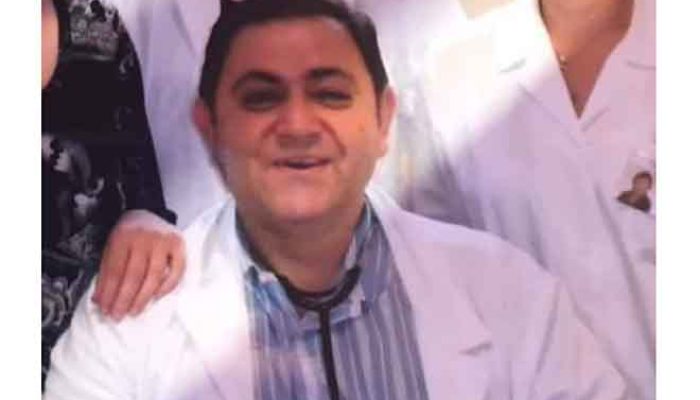ZORYAN INSTITUTE OF CANADA, INC.
255 Duncan Mill Rd., Suite 310
Toronto , ON , Canada M3B 3H9
Tel: 416-250-9807 Fax: 416-512-1736 E-mail: zoryan@zoryaninstitute.org
www.zoryaninstitute.org
PRESS RELEASE
FOR IMMEDIATE RELEASE CONTACT: Torrey Swan
DATE: September 29, 2006 Tel: 416-250-9807
Yerevan , Armenia -On the occasion of the 15 th anniversary of the Republic of Armenia , the third Armenia-Diaspora Conference was held in Yerevan from September 18 th to 20 th . Opening statements were made by President Robert Kocharian, His Holiness Karekin II, His Holiness Aram I, President Arkady Ghoukassian, and by representatives of many prominent Armenian organizations. The Zoryan Institute was invited to address the Plenary Session of the conference. During the conference, there were five themes concentrated on: Rural Poverty Eradication Program; Nation, State and Identity in the 21st Century; The Mechanics of Diaspora-Homeland Relations: A Two-Way Street; Repatriation and Territory of Common Identity ; and A Look at Diaspora 2020. Zoryan’s remarks linked these topics by focusing on the Armenian-Turkish relationship. The full transcript of Zoryan’s President, K. M. Greg Sarkissian, is reproduced below.
Shared Knowledge of History as a Catalyst for Dialogue
Mr. President, Vehapar Hayrer, and distinguished guests.
While we are gathered here to discuss issues related to the Rural Poverty Eradication Program, particularly in border villages, we have to think also about relations with neighbors on the other side of the border.
Today, many Turks and Armenians continue to see each other only as an unchanging and monolithic enemy, as opposed to their current reality. Genocide recognition continues to be one of the major stumbling blocks in Armenian-Turkish relations, which, we believe, should be established without any preconditions and with a view towards our future, in relation to the other side of the border.
Since the Justice and Development Party came to power in Turkey in 2002, it has followed an aggressive policy towards membership in the European Union. This meant that Turkey had to introduce numerous changes to its constitution and legal system to bring it in line with EU norms.
Through this initiative, the new government opened the door to free speech on long held taboos, such as linguistic and cultural rights for the Kurds, the rights of non-Turks and non-Muslims, and the need for Turkish society to deal with and debate its suppressed history, including, as an unwanted by-product, the Armenian Genocide.
These had long been perceived as a threat to the military-bureaucratic elite that constitutes the » Deep State . »
This has also caused significant tension among the various elements of the Turkish state, government and civil society. I am sure everyone here is familiar with the indictments of writers Orhan Pamuk and Elif Shafak, journalist Hrant Dink, and scholar Murat Belge, to name just a few, on the charge of « insulting Turkishness. » In May 2005, Justice Minister Cemil Çiçek accused the organizers of the Istanbul Conference on Ottoman Armenians of stabbing the Turkish nation in the back and called them traitors, while the Foreign Minister, Abdullah Gül, announced that he had no problem with the expression of critical opinion and even would be willing to participate in the conference. For their part, the conference organizers declared that « It is high time Turkey ‘s own academics and intellectuals collectively raise voices that differ from the official stance » on the killings of Armenians.
Some feel that trying to force Turkey to recognize the Genocide by external political pressure has radicalized those who are against freedom of speech. Others believe that without external pressure, Turkey would never deal with the Armenian Genocide. Neither option has improved relations between Armenia and Turkey .
It is clear that there is a fervent debate in Turkey today about greater democracy and freedom of expression. There are strong voices that want to reclaim history as a legacy that needs to be recognized and are pressing the government to abolish all obstacles to this process.
There is a clear need and strong desire within Turkey at this time for authoritative information on its suppressed history.
We at the Zoryan Institute see a unique opportunity at this particular juncture, to help provide information for this debate within Turkey . One of the best ways to do this is through systematic scholarly research and the publication of incontestable information in Turkish.
Zoryan, in collaboration with university research centres, such as the Center for Holocaust and Genocide Studies at the University of Minnesota , is part of a large project called “Creating a Common Body of Knowledge,” which is the brainchild of highly respected Turkish scholar, Professor Taner Akçam.
The objective is to provide knowledge that will be shared by Turkish and Armenian civil societies and western scholarship. The project aims to identify, collect, analyze, transliterate, translate, edit and publish, authoritative, universally recognized original archival documents on the history of the events surrounding 1915, in both Turkish and English. This material must be distributed widely in Turkey .
The work is difficult, requiring advanced knowledge of the Gothic German and Ottoman-Arabic scripts, the special diplomatic languages used, and the history and politics of the period. This long-term project will take many years to complete and will require enormous human and financial resources. Despite the difficulty, this work must be done, as denial and distortion of history are a major stumbling block to dialogue, and therefore peace, security and progress in the region. Without dealing with this history, prejudice and hatred will be perpetuated and will have unforeseen consequences for generations to come.
The more such documents are made available to Turkish society, the more it will be empowered with knowledge to question narratives imposed by the state. Restoring accurate historical memory will benefit not only Turkish, but also Armenian society. Both will be emancipated from the straightjacket of the past. Such a Common Body of Knowledge will lead to an understanding of each other, act as a catalyst for dialogue, and serve as a precursor to the normalization of relations between the two societies.
This work can only be achieved through the systematic and continued efforts of dedicated professionals, with staff and independent scholars and appropriate financial resources. This is such a large undertaking, in terms not only of resources, but also impact, that it must be supported by all Armenians, including the Armenian Government.
Towards this end, we propose that the Diaspora support the Zoryan Institute in the creation of an international Turkish Studies Centre in Armenia in collaboration with major universities here, in Turkey and elsewhere. New scholars, with the necessary expertise, would make a real contribution to the creation of this very important Common Body of Knowledge.
History is a stumbling block for peace and stability in the region. True peace can be achieved only if the nations in the region can talk to each other openly about their past. Therefore, we see education through the Common Body of Knowledge as one of the best ways to alleviate the tension between Turks and Armenians, because it provides a basis of shared knowledge that can counter generations of hostility and lead to mutual understanding and dialogue. In the meantime, we should continue our efforts to normalize relations with Turkey with a positive outlook towards our future, without compromising our past, our memory and our history.
Thank you
President, K.M. (Greg) Sarkissian
Le partage de la connaissance de l’histoire comme catalyseur pour le dialogue
Monsieur le Président, Pères Suprêmes et invités distingués
Alors que nous nous sommes réunis ici pour discuter de questions relatives au programme d’éradication de la pauvreté rurale, particulièrement dans les villages frontière, nous devons également penser aux relations avec nos voisins de l’autre côté de la frontière.
Aujourd’hui, de nombreux Turcs et Arméniens continuent à ne se voir l’un l’autre que comme un ennemi inchangé et monolithique, opposés à leur réalité actuelle. La reconnaissance du Génocide continue à être l’une des principales pierres d’achoppement des relations arméno-turques, qui, croyons-nous, devraient s’établir sans aucune pré-condition et un regard vers l’avenir, relativement à l’autre côté de la frontière.
Depuis que le Parti de la Justice et du Développement est arrivé au pouvoir en Turquie en 2002, il a poursuivi une politique agressive envers l’adhésion à l’Union Européenne. Cela signifiait que la Turquie devait introduire de nombreux changements à sa constitution et à son système juridique pour les aligner aux normes de l’UE.
Par cette initiative, le nouveau gouvernement a ouvert la porte à la liberté d’expression concernant les tabous de longue date., tels que les droits linguistiques et culturels pour les Kurdes, les droits des non-Turcs et des non-Musulmans, et le besoin pour la société turque de traiter l’histoire supprimée et d’en débattre, y compris, en tant que sous-produit non désiré, le Génocide arménien.
Ces sujets ont longtemps été perçus comme une menace envers l’élite militaro-bureaucratique qui constitue « l’Etat profond ».
Cela a également causé une tension considérable parmi les différents éléments de l’Etat turc, les membres du gouvernement et de la société civile. Je suis sûr que chacun ici est au courant des inculpations des écrivains Orhan Pamuk et Elif Shafak, du journaliste Hrant Dink, de l’intellectuel Murat Belge, pour n’en nommer que quelques-uns accusés d »avoir insulté la turcicité ». En mai 2005, le Ministre de la Justice Cemil Çiçek a accusé les organisateurs de la Conférence d’Istanbul sur les Arméniens ottomans de poignarder la nation turque dans le dos, et les a appelés des traîtres, tandis que le Ministre des Affaires Etrangères, Abdullah Gül, annonçait qu’il n’avait aucun problème au sujet de l’expression d’une opinion critique, et voulait même participer à la conférence. Pour leur part, les organisateurs de la conférence déclarèrent « qu’il était grand temps que les propres universitaires de Turquie ainsi que les autres intellectuels, élèvent des voix qui diffèrent de la position officielle » sur les meurtres des Arméniens.
Certains sentaient qu’essayer de forcer la Turquie à reconnaître le Génocide par une pression politique externe, avait radicalisé ceux qui sont contre la liberté d’expression. D’autres croient que sans une pression externe la Turquie ne voudrait jamais traiter du Génocide arménien. Aucune de ces options n’a amélioré les relations entre l’Arménie et la Turquie.
Il est clair qu’il y a aujourd’hui en Turquie un ardent débat pour davantage de démocratie et de liberté. Il y a de fortes voix qui veulent récupérer l’histoire comme un héritage qui nécessite d’être reconnu, et ces voix pressent le gouvernement d’abolir tous les obstacles à ce processus.
Il y a un besoin évident et un vif désir en Turquie en ce moment d’une information faisant autorité sur cette histoire supprimée.
Ici, à l’Institut Zoryan, nous voyons une occasion unique en ce moment particulier, d’aider à fournir une information pour ce débat en Turquie même. L’un des meilleurs moyens de faire cela est la recherche universitaire systématique et la publication d’une information incontestable en langue turque.
L’Institut Zoryan, en collaboration avec les centres de recherche universitaires, tels que « The Center for Holocaust and Genocide Studies » à l’Université du Minnesota, fait partie d’un vaste projet appelé « Creating a Common Body of Knowledge » (Créer un Corps commun de Connaissance) conçu par l’universitaire turc hautement respecté, le professeur Taner Akçam.
L’objectif est de procurer une connaissance qui sera partagée par des sociétés civiles turques et arméniennes et des universités occidentales. Le projet a pour but d’identifier, de collecter, d’analyser, de translittérer, de traduire, d’éditer et de publier, des documents d’archives originaux, universellement reconnus et faisant autorité, sur l’histoire des événements autour de 1915, aussi bien en turc qu’en anglais. Ces matériaux devront être distribués largement en Turquie.
Ce travail est difficile, exigeant une connaissance approfondie de l’allemand gothique et des manuscrits arabo-ottomans, des langues spéciales diplomatiques utilisées, et de l’histoire et de la politique de la période. Ce projet à long terme prendra plusieurs années pour être complété, et exigera d’énormes ressources humaines et financières. Malgré la difficulté, ce travail doit être fait, car le dénégation et la distorsion de l’histoire sont une pierre d’achoppement majeure pour le dialogue, et donc pour la paix, la sécurité et le progrès dans la région. Faute de traiter cette histoire, le préjudice et la haine se perpétueront et auront des conséquences imprévisibles pour les générations à venir.
Plus de tels documents seront mis à la disposition de la société turque, plus elle sera habilitée à connaître et à s’interroger sur les récits imposés par l’Etat. Restaurer une mémoire historique exacte sera bénéfique non seulement à la société turque, mais aussi à la société arménienne. Toutes deux seront libérées des rigidités du passé. Un tel Corps commun de Connaissance mènera à une compréhension l’un de l’autre, agira comme un catalyseur pour le dialogue, et servira de précurseur à la normalisation des relations entre les deux sociétés.
Ce travail ne peut être réalisé que par des efforts systématiques et continus de professionnels dévoués, avec un personnel d’universitaires indépendants, et des ressources financières appropriées. C’est une entreprise si vaste, en termes non seulement de ressources, mais aussi d’impact, qu’elle doit être soutenue par tous les Arméniens, y compris le gouvernement arménien.
Dans ce but, nous proposons que la Diaspora soutienne l’Institut Zoryan pour la création d’un Centre international d’Etudes turques en Arménie, en collaboration avec les principales universités ici, en Turquie et ailleurs. De nouveaux universitaires, avec la compétence nécessaire, apporteraient une contribution réelle à la création de ce très important Corps commun de Connaissance.
L’histoire est une pierre d’achoppement pour la paix et la stabilité de la région La véritable paix ne peut être réalisée que si les nations de la région peuvent parler ouvertement les unes avec les autres de leur passé. Par conséquent, nous voyons l’éducation par le Corps commun de Connaissance comme l’un des meilleurs moyens d’alléger la tension entre Turcs et Arméniens, car elle fournit une base de connaissance partagée apte à neutraliser des générations d’hostilité et mener à une compréhension mutuelle et un dialogue. Pendant ce temps, il nous faut continuer nos efforts pour normaliser les relations avec la Turquie, avec une perspective positive sur notre avenir, sans compromission avec notre passé, notre mémoire et notre histoire.
Merci



